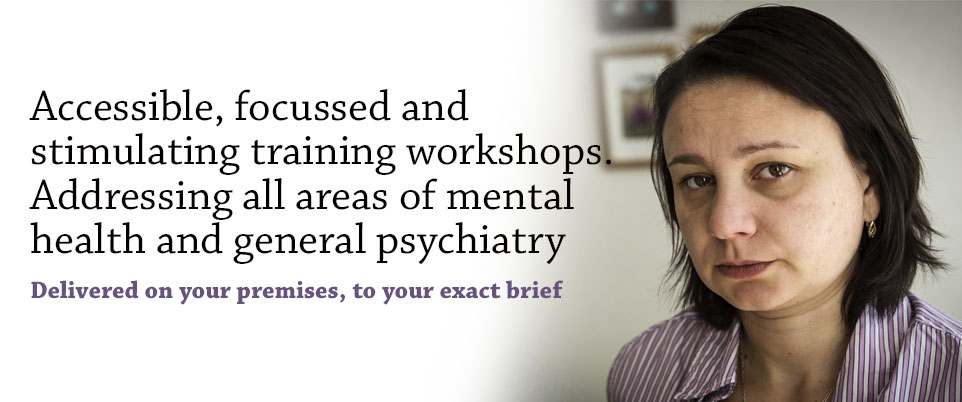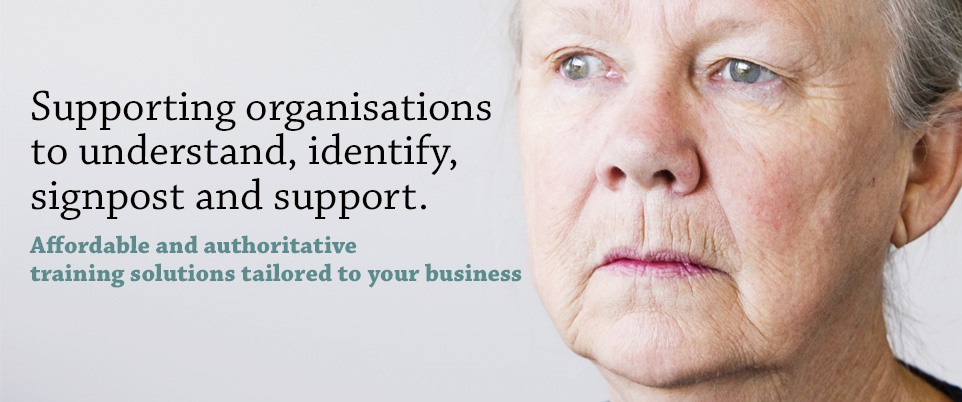New workshops –
The DBT model – an adapted model
Applying the principles of Dialectical Behavioural Therapy in a CBT environment.
MHT provide insight to the key principles and applications of Dialectical Behavioural Therapy (DBT) and support organisations to apply some of its tools in a blended-psychotherapy environment. DBT offers a series of techniques and skills dedicated to the field of personality disorder, it is an evidence-based intervention dedicated to the psychological support of individuals with emotional instability and its principles are particularly useful to organisations that support vulnerable people. MHT’s training provides a blended application inspired by the principles of DBT but incorporating appropriate models from the field of Cognitive Behavioural Therapy. It is a flexible workshop and is dedicated to the needs of your client base and all training is bespoke-designed to your needs and learning objectives. Please speak to a consultant for further details.
Better Decisions – Motivating people to reduce self-defeating behaviours
New challenges, new worries……
The shape of social housing has changed. Welfare reforms, direct payments and the bedroom tax are increasing pressures on the social housing industry. Many organisations are increasingly anxious about the maintenance of tenancies and collections of rent. This uncertainty is threatening to undermine the smooth running and success of some businesses; the solutions are not obvious in the face of such problems and anxieties.
Human beings have an inmate capacity to make bad decisions. Denial is a common psychological defence mechanism unconsciously employed to reduce the anxiety at having made unhealthy decisions, or engaged in maladaptive behaviours and life choices. Resistance and reactance typically occur when individuals are confronted or challenged with the reality of their bad choices. Pressure to adopt a particular decision or behaviour (even if it is given as well meaning advice) will almost always reinforce (and often increase) the undesirable behaviour as individuals attempt to justify their actions and free will. This is nearly always outside of the consciousness of all parties involved in the process.
So the opposite of your organisation’s needs and expectations may be the consequence of your actions and interventions! Telling a person that they are heading for disaster may do nothing to avert it. This has implications for your business, particularly when you need tenants and service users to:
- comply with requests,
- pay rent on time,
- maintain properties and agreements,
- comply with orders
- act in an appropriate way.
New solutions:
This workshop will teach staff the techniques of ‘Motivation to change / Motivational Interviewing (MI)’ (Miller et al) and many of the skills found in persuasion psychology (Cialdini et al), and to apply these with ease, comfort and quantifiable success.
Telling people how to behave rarely changes behaviours; it typically decreases a motivation to comply and increases resistance. For this reason the ‘MI’ counselling style has revolutionised the healthcare and counselling industries. This workshop adapts industry standard motivation and persuasion techniques and applies them to the new challenges in the social housing setting.
Industry-standard skills, dedicated to social housing… Motivation and persuasion psychology are not radical or new solutions. Their application to the social housing workplace is totally new. This workshop offers highly successful and established solutions to a new and increasing problems. Even if delivered with a basic skill level Motivation to change persuasion psychology offers the right solution, at the right time.
This workshop will coach staff to:
- Motivate difficult tenants to comply with requests and to prioritise decisions in everyones best interests;
- Motivate tenants to prioritise payment of rent;
- Motivate tenants to prioritise the health and wellbeing of their codependants and reduce
maladaptive and self destructive behaviours; - Motivate tenants to act in socially responsible ways, reduce tenancy and healththreatening actions;
- Motivate tenants to satisfy the mutually beneficial requirements of tenancy maintenance.
Understanding difficult behaviour in the workplace. A course for managers
Mental Disorder and Difficult Staff Behaviours – A training workshop to support managers better understand and manage the dynamics of Mental Disorder and Irrational Staff Behaviour in the Workplace:
This workshop supports managers to better understand mental health disorders and abnormal psychology in the workplace. Distorted thinking and disorganised emotions and behaviours are explored from the perspective of diagnosable psychiatric disorder and within the context of the ‘difficult personality’.
It may be important to signpost staff with mental disorder to appropriate medical care and this is better managed if managers have greater insight to mental illness and the treatments / interventions in the NHS. Some disruptive or difficult staff behaviours may be the consequence or irrational thinking and abnormal psychology, consequently, medical interventions would not be appropriate or even offered. In such cases, managers may need to tailor their communications and interactional styles to better-manage difficult behaviours effectively.
Stress has a complex relationship with mental wellbeing. The cycle of stress can be quite disabling, it affects self-esteem, work performance, relationships and commonly presents with physiological distress and stress-related health problems. An individual exposed to stress in the workplace may develop a sense of resentment; believing that management misrecognise their concerns or invalidate their experiences. This scenario may manifest in uncomfortable group dynamics, compromised performance and escalation to GP and primary care providers which results in staff absences and negative consequences for all.
Stress-related problems may be at the foundation of some difficult staff behaviours and managers are supported to better understand and manage employee stress with greater efficacy.
This workshop is delivered by a professional psychologist with training in Psychiatry. The content is flexible and dedicated to your learning needs. Free post-training support is available by telephone to all delegates.




